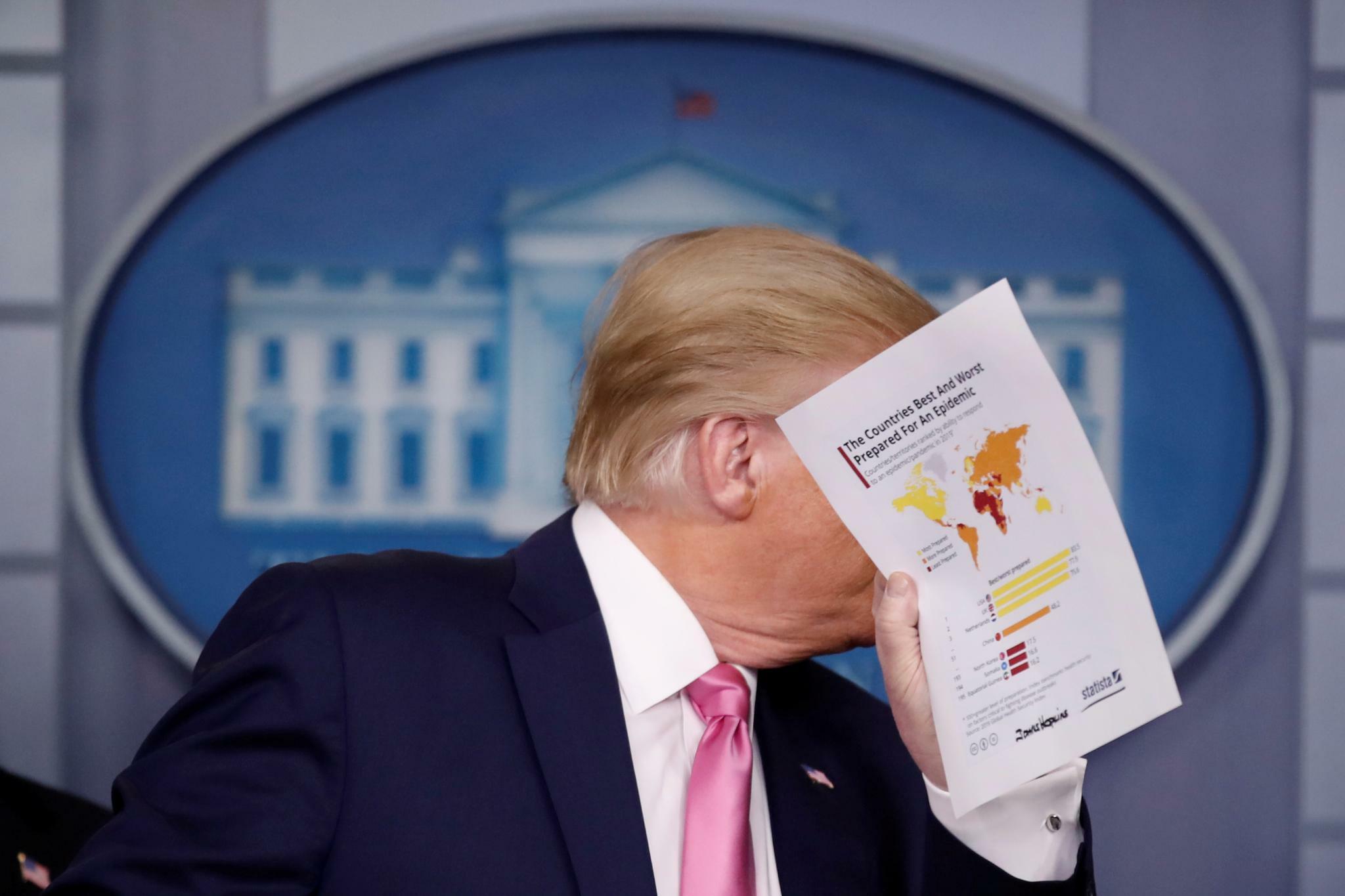A poll this week revealed that only 36 percent of Americans trust US President Donald Trump’s handling of the coronavirus disease (COVID-19) crisis. This figure is 10 percent below his overall approval rating, which means that the dissatisfaction with the way he has responded to the pandemic has crossed partisan lines — which is bad news for him. It means that he cannot afford to make any foreign policy blunders between now and the presidential election in November.
Meanwhile, Joe Biden, who is now all but assured of securing the Democratic presidential nomination, is presenting himself as a restorationist president. Adopting a centrist, internationalist position, he has vowed to restore the international image and standing of the US and rebuild its relationships with allies that have soured under Trump.
In terms of foreign policy, if Trump is to win a second term he will need to prove that under his guidance the US has established a strong presence in world affairs, and that he can still count on the loyalty of traditional allies. At the same time, he would be wise not to initiate any confrontations that might have unpredictable outcomes.
Four years ago, Trump ran as an isolationist presidential candidate focusing on domestic affairs. With the spread of the COVID-19 pandemic there is even more pressure on him to maintain a focus on domestic polices, especially with all the indicators predicting a steep recession in the aftermath of the health crisis. Nevertheless, further retrenchment in the arena of world affairs will play into Biden’s narrative. Trump therefore needs to develop his policies very carefully.
Of course, a win in foreign affairs would help restore the image of his leadership, which increasingly has been called into question during the pandemic. The most important issues affecting the Middle East for him to focus on during the next six months are Syria, Iraq and the Gulf waterways.
In Syria, Trump cannot let Turkish President Recep Tayyip Erdogan make any deals with Russia. Less than a week after announcing it would activate its Russian-built S-400 missile defense systems, on April 20 Ankara announced that this will be postponed as a result of the coronavirus crisis. The activation of the systems would drive a wedge between the US and Turkey, and any deals between Erdogan and the Russians represents defeats for Trump.
Within Syria, Trump cannot afford the carnage that would occur if Syrian President Bashar Assad takes control of Idlib from the Turks. If he supports Erdogan in pushing back Assad’s forces, he could score a win without having to directly involve American troops — especially if he manages to sideline Moscow.
Assad, meanwhile, would be greatly damaged if forced to retreat, as he has been preparing for an assault on Idlib for over a year. After an initial offensive, he had to hold back because of the agreement between Russia and Turkey.
If NATO extends a helping hand to Turkey in Syria, Trump could carve out for himself the role of mediator between Moscow and Ankara. If he does this, and rebuilds his relationship with Turkey, he could reintroduce himself as a guarantor for the Kurds.
Last year, a letter from Trump urging Erdogan to strike a deal with Syrian Kurdish military leader Gen. Mazloum Kobani Abdi was rejected by the Turkish president, and mocked by many of Trump’s critics. However, if he can restore his leverage with Ankara by offering support in Idlib, he might be able to secure some concessions regarding the Kurds.
In the meantime, Trump will enforce the Caesar Syria Civilian Protection Act, which sanctions the Syrian regime for war crimes against the Syrian population and would make it near impossible for Assad to deal with anyone. The sanctions, due to come into force on June 17, have bipartisan support in the US Congress. In fact, a group of lawmakers from both sides of the aisle urged Trump to apply them earlier to put additional pressure on Assad during the Idlib crisis.
The sanctions would indeed represent the peak of the “maximum pressure campaign” against Assad and, coupled with a successful military campaign, will garner a triumph for Trump. If NATO offers assistance, he could rebrand himself as the president who restored US leadership of the Western world. This would be a huge blow to Biden, who is seen as someone who will usher in a return to Obama-style policies. With success in Syria, Trump could undermine Biden’s restoration narrative, especially given that Obama’s reluctance to take decisive action in Syria led to a buttressing of the Assad regime and created a void that was ultimately filled by Russia.
In Iraq, meanwhile, the US is consolidating its military presence. All troops will now be stationed in two locations: Baghdad and Ain Al-Assad. Trump was already intending to reduce the number of US troops in the country, and the pandemic has accelerated the plans due to concerns about the risk to soldiers of infection.

